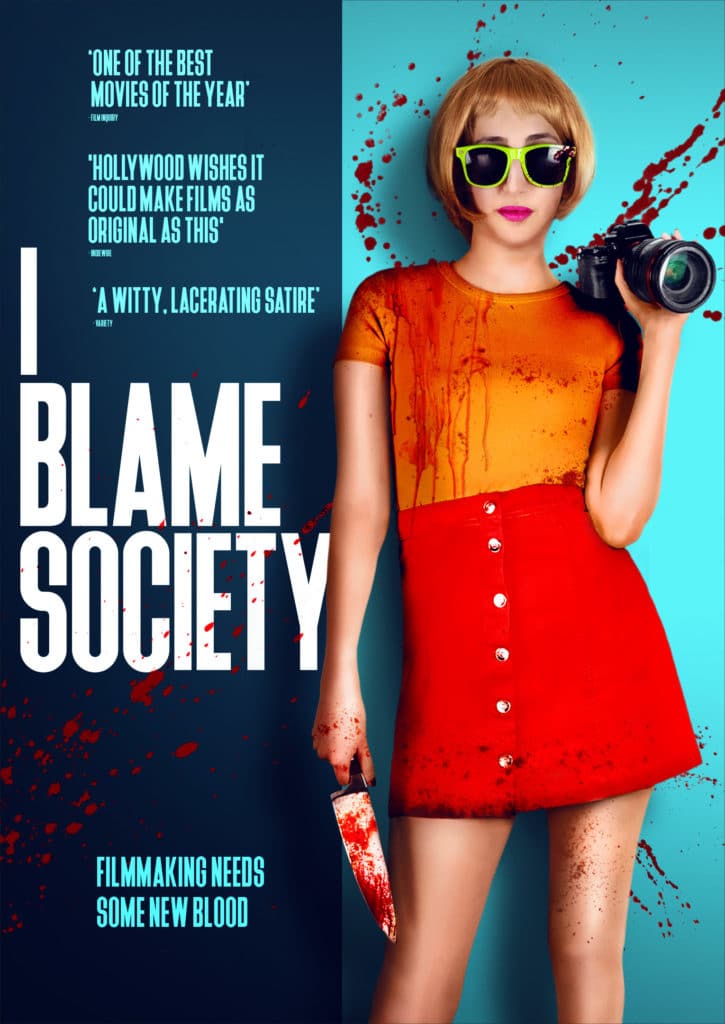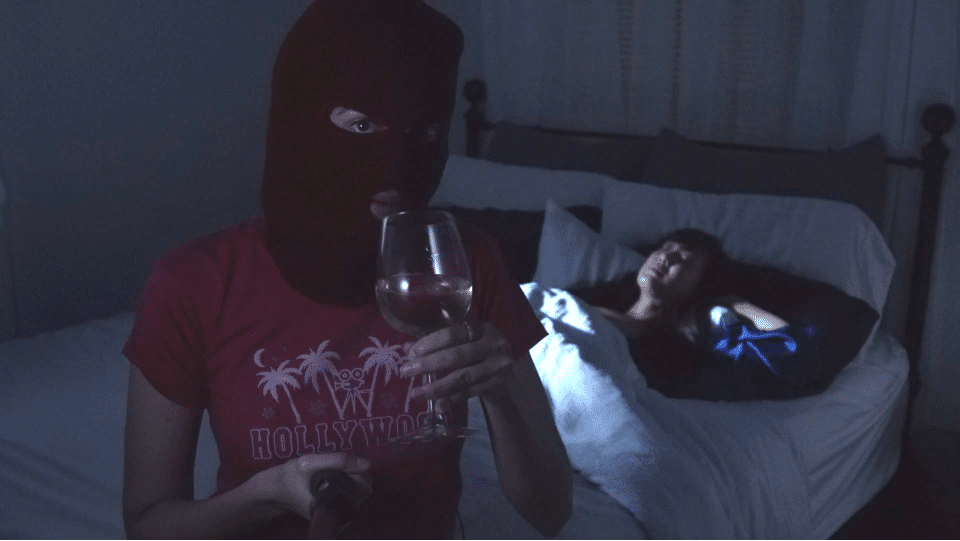
Meet Gillian. Gillian is an aspiring filmmaker, albeit one who could use a content filter; this is clear as she explains to her friend Chase that some mutual friends paid her the unusual compliment of saying she’d ‘make a good murderer’, so she wants to explore the idea by going to his place and elaborating a fantasy of murdering his dreadful girlfriend, using this as the basis of a film project. Few people take kindly to such a notion, so it’s little surprise that Chase’s smile soon fades. Gillian attempts to rescue the situation by digging herself into a deeper hole and…three years pass. Given that this conversation takes place on film, we can only guess at what was said once Gillian finally stopped recording.
Reading between the lines, it seems that the intervening three years have been pretty tough. Being knocked back on a different project by a man who video-calls her with a static shot of his ear, almost as if he can’t even be bothered to match his indifference to the correct conversational medium, Gillian (director and writer Gillian Wallace Horvat) begins to fixate on the old project – the one which saw her falling out with Chase in the first place. She’s now calling it I, Murderer, but boyfriend Keith is soon exasperated with her enthusiasm for what he deems a terrible project which has no future. Gillian defends it; clearly, getting something – anything – completed with her name on the credits is taking on a greater significance, no doubt due to the severe lack of work out there, and with the clock ticking on her career. I, Murderer has to happen, therefore. Perhaps it’s predictable that the project begins to take over Gillian’s life, but with it comes a seismic shift in her personality. Soon, the dividing line between real life and film set begins to blend into one.

I Blame Society is by no means the first film to examine this real life/film project blend, and as such it slots in to a subgenre which counts the likes of Man Bites Dog, Resurrecting ‘The Street Walker’ and perhaps most of all, Strawberry Flavoured Plastic – though its own approach boasts some differences in style, perhaps most notably by centring Gillian throughout, remaining her project, curated only by her. It also uses a fairly acerbic style of comedy which sends itself up more than most films in the subgenre, albeit that this humour is delivered in a range of ways from deadpan to Gillian’s own, it has to be said, rather shrill and affected approach. The film is tonally a little odd in places, and Gillian’s performance is for me the most difficult aspect of the film to warm to, even if the film deserves some credit for presenting a female perspective in a way far from aspirational or uncomplicated. But to be fair, all the characters here are shown in a harsh light, with dialogue which can be funny, but also exasperating, in that it only reveals these people to be worse than they at first seemed. Given the natural emphasis on continually filming, the first half of the film does meander; you do still find yourself pondering why Gillian films absolutely everything, even whilst knowing she is doing so to get as much footage as possible which she could use. The mumblecore elements are patently not for everyone and nor have they ever been; the loose, unfocused build-up in I Blame Society can test one’s patience.
The film’s best elements relate to its treatment of new-school filmmaking practices which are electively all about ‘female perspectives’, ‘intersectionality’ and a number of other buzzwords which are meant to be linked to making filmmaking a more diverse place – represented, as they are here, in the mouths of people who don’t really understand them, and nor have they really shifted their attitudes at all. In this, some of the anger expressed by Gillian (the character) is almost certainly overlapping with Gillian (the director), and it’s the film at its most honest. Current progressive social mores haven’t swept away old favourites like nepotism and general cluelessness; the meetings with the producers not only underline that, but they make for excruciating (if very funny) viewing.
Offering stark comment in some respects and more subtle commentary in others, I Blame Society is a curious tale: a patchwork of dubious characters and motivations, it takes a while to get going, and it isn’t without its challenges along the way. But, as things escalate, it does drive towards a pretty grim finale.
Blue Finch Film released I Blame Society on Digital Download 19th April.
